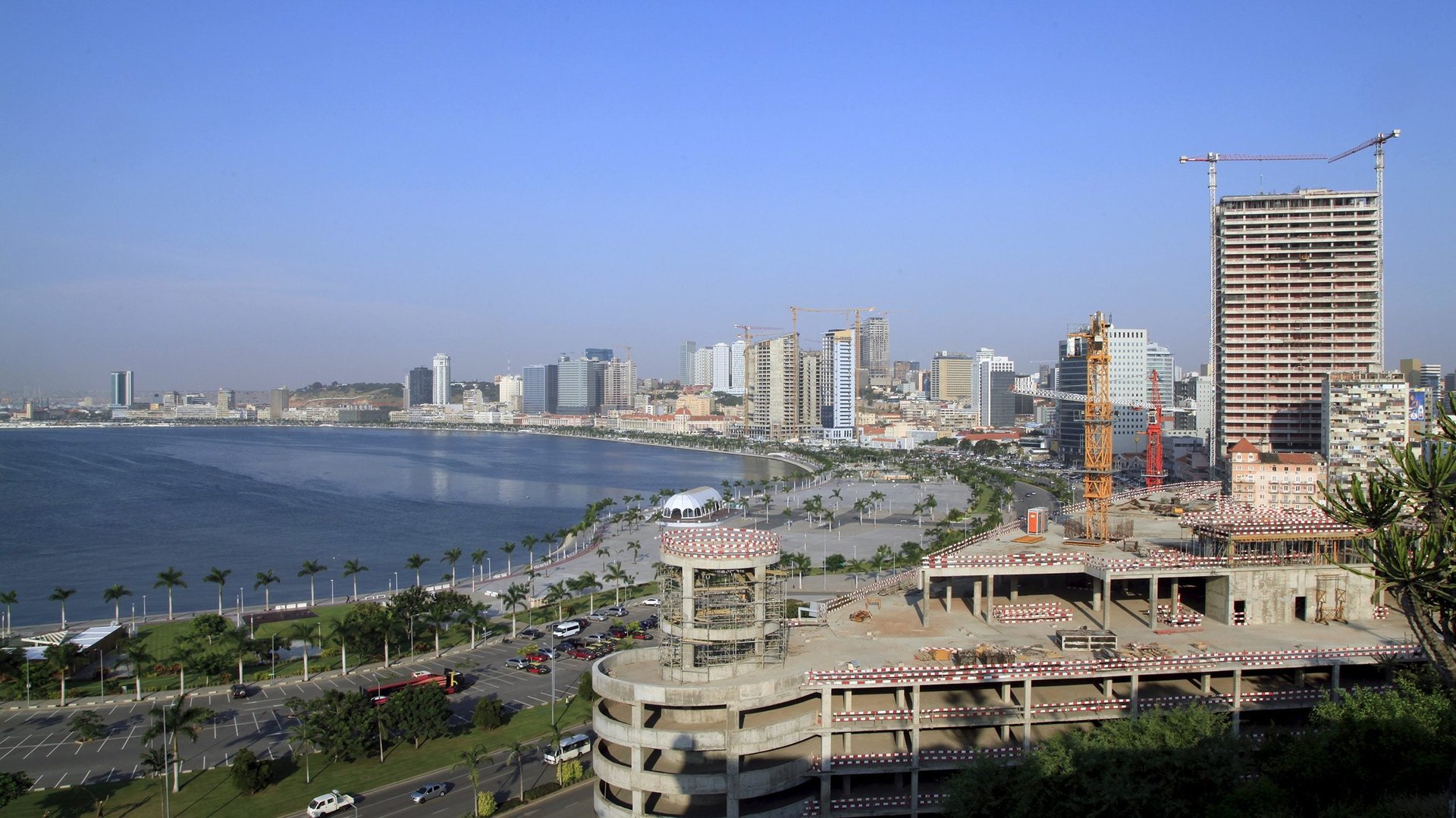Angola has become a much cheaper country for foreign expats—but not for locals
Luanda’s run over the past decade as the most expensive city in the world has come to an end.


Luanda’s run over the past decade as the most expensive city in the world has come to an end.
In contrast to the Angolan capital’s established ranking at the top of the annual cost of living index compiled by global consulting firm Mercer, it has tumbled in the last two years. Rankings released in June show Luanda placed 26th out of 209 cities—a twenty place drop from last year when it ranked 6th. In fact, Luanda is now the fourth highest ranked African city, behind Ndjamena, Kinshasa and Lagos.
Mercer’s index is based on the prices of goods and services including food, utilities, transport logistics and accommodation (collectively referred to as a “basket”), that expats purchase. It then compares costs by converting prices from local currencies to US dollars. And that’s the root of Angola’s fall in the rankings: in Jan. 2018, the government ditched its currency peg to the dollar and essentially devalued its local kwanza currency.
Between March 2018 and March 2019 (when the surveys for the index were conducted), the Angolan kwanza fell 49% versus the US dollar. “This means that you now need fewer US dollars to buy the same basket in Angola,” says Yolanda Sedlmaier, principal mobility consultant for Africa at Mercer.
Angola’s place atop the rankings was often used as a signpost of its stark inequality at home despite vast oil riches. Even as it became a haven for oil sector expats with large pay packages and purchasing power, that reality was far beyond the reach of locals. A 2016 report by UK charity Legatum Institute showed Angola has failed to deliver prosperity to its citizens despite its oil wealth.
Yet, being ranked lower does not mean much has changed for locals. Put another way: Luanda becoming cheaper for expats doesn’t make it cheaper for locals given their vastly different shopping preferences. “The basket in Angola has become a lot cheaper in dollar terms although the price tags on the items in Angolan supermarkets may not have changed,” Sedlmaier says. Luanda is “still an expensive city to live in for locals.”
While in some cities, being highly ranked on the index can be an indicator of economic growth and broad local demand for top-end products given GDP per capita, that’s hardly the case in the any of highly ranked African cities where wide income gaps remain.
As it turns out, expat-hiring corporations that partly fueled the living costs spike may yet be the biggest beneficiaries. While factors like political stability and safety are likely to also be considered, being a much cheaper city for expats involved in its petroleum industry means Luanda will become even a more attractive destination, Sedlmaier says. “If you buy an item in Angola with US dollars now it costs you 50% cheaper than it did last year. That’s a huge difference.”